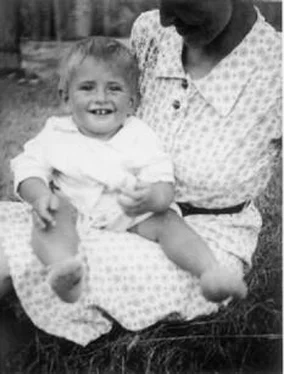At this time James Gadsen, the U.S. ambassador to Iceland, got involved, suggesting that Iceland drop the offer of sanctuary to Bobby Fischer. David Oddsson, in his foreign minister role, invited Gadsen to his office and then categorically refused to back down, adding that Fischer’s alleged crime of a violation of trade sanctions in Yugoslavia had exceeded Iceland’s statute of limitations.
Perhaps because of the political pressure exerted on him, Japanese justice minister Chieko Nohno told reporters after a cabinet meeting, “If he [Fischer] has Icelandic citizenship it would be legally possible to deport him to that country. The Immigration Bureau must think about the most appropriate place for him to be deported to.”
The situation remained unresolved, however, and as Bobby reached his sixty-second birthday in his cell, he was morose. He’d served nine months in prison, and the few people who visited him said he looked wretched. Thorarinsson said that Fischer, locked behind bars, reminded him of Hamlet, and then he quoted a line from Shakespeare’s play:
I could be bound in a nutshell
And count myself a king of infinite space
Were it not that I had bad dreams .
The RJF members called virtually every member of parliament to lobby for citizenship: full, permanent citizenship, not just a temporary permit to live in Iceland. They then met with the General Committee of Althingi. A bill was written asking for approval of citizenship for Bobby Fischer, and an Extraordinary Session of Parliament was called for Saturday, March 21, 2005. Three rounds of discussion took place in the space of twelve minutes, and questions were posed regarding the extent of the emergency. The answers were succinct and forthcoming: Bobby Fischer’s improper incarceration was a violation of his rights; all he was really guilty of was moving some wooden pieces across a chessboard; he’d been a friend of Iceland, and had a historical connection to it, and now he needed the country’s help.
Once the issues had been dealt with, each member of the Althingi was polled on whether to grant Fischer permanent citizenship. “Já,” said forty members, one by one. “Forõast,” said two members who abstained. No one voted “Nei.”
Bobby smiled for the first time in months when he heard that the Icelandic bill had been enacted, and on March 23, 2005, he was released from his cell. He was picked up by a limousine supplied by the Icelandic embassy, given his new Icelandic passport, and he and Miyoko, hand in hand, sped to Narita Airport.
When Bobby emerged from the limousine at Narita, the scene resembled that moment in A Tale of Two Cities when Dr. Manette is released from the Bastille, “recalled to life” as it were: white-haired, battered, with a grizzly beard and old clothes. The difference between Bobby and Dickens’s good doctor was the voice: Manette’s was faint, “dreadful and pitiable”; Bobby’s was booming, ferocious and vengeful. “This was nothing but a kidnapping, pure and simple!” he said to the dozens of reporters and photographers who were following him into the terminal. “Bush and Koizumi [the American and Japanese presidents] are criminals. They deserve to be hung!” said bad old Bobby, showing that prison had done nothing to tamp down his denunciatory fervor. But something in him had changed. When Zita, then thirty years old, saw the footage of him on television, she said: “It is not his beard. There is something bothering about his eyes. He is a hopeless, broken man.”
When Bobby’s plane touched down at Keflavik Airport, and he stepped on the tarmac, he didn’t kneel down and kiss the ground—at least, not literally. Metaphorically, however, he genuflected to the land of the Vikings. He was now in a country that really wanted him, and for the first time in thirteen years he felt truly safe. His first order of business was to settle into the Presidential Suite at the Hotel Loftleidir and order one of his Rabelaisian meals, with bowls and bowls of skyr .
15
Living and Dying in Iceland

FIRST THERE WERE the familiar hazel eyes. They stared at everything furtively, judgmentally, not wanting or permitting eye contact with others. Bobby Fischer’s gaze ricocheted from the partially cobble-stoned road of Klappirstigur Street, where he lived, to the slight rise up to the busy thoroughfare of Laugavegur, with its little shops, then back to the BMWs and Volvos parked at meters and the blue-eyed and cherry-cheeked Icelanders heading back to work after lunch. The passersby recognized Bobby: He’d become the most famous man in Iceland and was remembered not for his public venom toward America but for putting Iceland on the map in 1972. His frozen glance denied them access, however, and they walked with their heads down, trying to lessen the slight of his disregard as they bent against the bitterly cold wind sweeping down from Mount Esja and off the bay. A crunch of snow seeped slowly into the sides of Bobby’s black Birkenstock clogs.
Then there was his ineffective signature disguise: blue denim work shirt and pants, a black leather fingertip coat with a leather baseball cap to match, and the obligatory blue fleece sweater, all carefully selected so that he’d appear to fit in, to be seen as just one of the Norse folk who were his new countrymen.
Gone were the elegant handmade suits and carefully knotted ties. The man who’d proudly owned eighteen suits as a teenager, and who’d aspired to own a hundred more, now dressed the same way every day. People, even his friends, thought Bobby only owned one outfit, because his appearance was unvarying, but he owned several copies of the same denim pants and shirt, and he laundered and ironed them himself, often daily, usually late at night, singing as he pressed for perfect creases. As for what people thought about his dress, he was cynical and terse: “That’s their problem.”
Downtown Reykjavik, a charming city of almost 120,000 people, has the atmosphere of a typical Scandinavian village, although it’s somewhat larger. A visitor sees twisting streets, tidy clapboard houses with colored roofs, shops for tourists and locals, and people dressed in boots, parkas, scarves, and woolen hats pulled over their ears. It’s not quite Gstaad or Aspen, but the weather is cold enough to ski on the snow-covered mountains looming to the north.
Often, Bobby walked barely two blocks from his apartment to one of his favorite restaurants, Anestu Grösum—“The First Vegetarian”—and climbed the stairway to the pumpkin-painted second-floor eatery. The food was spread out behind a counter, cafeteria style, and he simply pointed to what he wanted. The server behind the counter, who looked something like the actress Shelley Duvall, smiled and handed him a tray with his selected food. The portions were huge.
When Bobby, as was typical, arrived past two o’clock, the restaurant would be sparsely filled: perhaps a Danish hippie, two American tourists, and three young local girls preoccupied with what they thought was important gossip. Ever a creature of habit, Bobby moved to his favorite table—one by the window looking out onto a side street, with a few birch and juniper trees not yet in bloom. Before he sat, he’d go to the cooler and help himself to a bottle of organic beer, Oxford Gold, and as he confronted his food, he’d open his latest reading matter. He was particularly taken with a book entitled The Myth of Progress , by Georg Henrik von Wright, a Finnish philosopher and successor to Ludwig Wittgenstein at the University of Cambridge. A moral pessimist, von Wright questioned whether the material and technological advances of modern society could really be considered “progress” at all. Bobby had found an English-language copy of the book at the local bookstore, Bókin (“Book”), and it seemed to mesh with his own philosophy. He was so taken by von Wright’s ideas that when he discovered an Icelandic edition of the book at Bókin, he gave it as a gift to his new friend Gardar Sverrisson.
Читать дальше



![Антон Текшин - EndGame [СИ]](/books/394477/anton-tekshin-endgame-si-thumb.webp)









